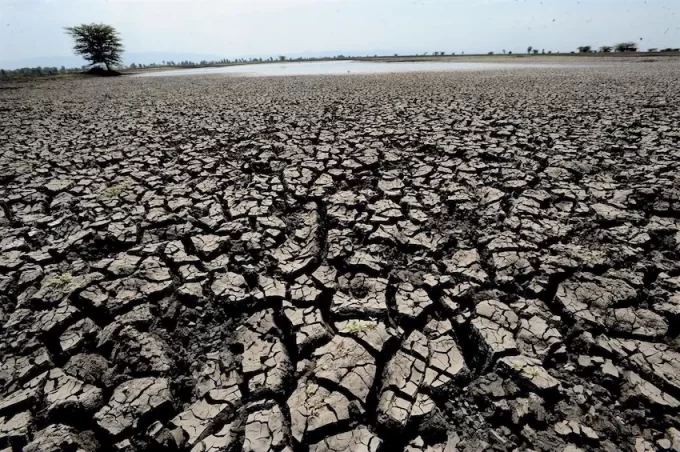Carbon trading market: Even before the world returns to normalcy, we seem to have another dire and urgent problem to deal with. Decades-old warnings about the prospect of climate change and global warming have now become a stark reality globally.
The last two weeks have particularly been serious. Unprecedented floods in Asia and Western Europe have devastated people’s lives and property. And it seems no level of preparedness could withstand nature’s wrath. Germany, France, Belgium, Luxembourg, Switzerland, and the Netherlands were the hardest hit, with parts of Germany receiving two months of rain in a span of 24-48 hours.
With the subsiding of the rains, these countries are counting their losses after rivers broke their banks and flash floods swept through several towns. Hundreds of people are either dead, missing or injured. In the Germany case study, the country’s insurance industry association said in a statement that the worst natural disaster in more than 50 years will cost the industry an estimated five billion euros ($5.9 billion).
On the other side of the hemisphere, Western states in the U.S. have been battling perennial wild fire shave which has consumed more than 410,000 acres and has defied efforts by thousands of firefighters to contain. The relentless fires have been blamed on dry weather and strong winds. European countries, particularly Italy, have also been battling devastating fires as a result of the same dry weather phenomenon.
In Asia, India seems to be the epicenter of global warming with the country grappling with either floods of heat waves. According to ReliefWeb, heatwaves caused over 6,167 confirmed deaths in India between 2011–2018. A paper by the country’s top meteorologists says that there were 706 heatwave incidents in the country from 1971-2019 resulting in the death of 17,000 people.
Africa and Australia are now accustomed to prolonged dry spells, with repercussions being felt more in the former due to inadequate mitigation and adaptation strategies. Unlike Australia which is a developed region, Africa is a minimal emitter but bears the brunt of industrial activities of advanced economies.
Now, China’s launch of the world’s largest carbon trading market in Shanghai on 16th July could not have come at a more opportune moment. The national launch comes about 10 years after the success of pilot schemes in the regions.
The carbon trading market is a step forward in the country’s ambition of reaching a carbon emissions peak before 2030, and attaining carbon neutrality by 2060.This could be achieved because companies listed on the market reportedly contribute to four billion tons of carbon dioxide.
Basically, carbon markets act as a carrot-and-stick strategy of controlling climate change by either penalizing or incentivizing carbon emitters. They help to decrease emissions by offering financial rewards and punishments in the form of credits, allowances, or quotas that can be purchased and sold in a marketplace. China’s carbon trading market is managed by the Ministry of Ecology and Environment, while trading is overseen by the Shanghai Environment and Energy Exchange.
Currently, only energy companies are listed on this market covering more than 2,225 enterprises that operate coal and gas plants to produce power and heat, plans are underway to expand the scope to include other polluting industries including steel, cement, chemicals, and aviation.
Carbon markets act as a carrot-and-stick strategy of controlling climate change by penalizing or incentivizing carbon emitters.
As if to make a point on the importance of the carbon market, soon after the launch, the country experienced the worst floods in centuries leading to loss of life and massive loss of agricultural production. This makes the establishment and success of the carbon market inevitable.
It works. Gabon has already set the pace for other African countries by being the first African country to “receive results-based payments for reduced emissions from deforestation and forest degradation.” According to an article published by Africa Renewal, the first payment is part of the breakthrough agreement between Gabon and the multi-donor UN-hosted Central African Forest Initiative’s in 2019 for a total of US dollars 150 million over ten years.
See Also >> The Worst Is Coming If We Do Not Manage Climate Change
China is expected to also play a significant in helping Africa transit to renewable energy. The continent has an estimated solar energy capacity of 660,000 terawatt-hours per year. According to the International Renewable Energy Agency, China helped upgrade solar capacity in Africa from 739 megawatts to 5,500 MW between 2009 and 2018, while wind energy installations during the same period jumped from a paltry 108 MW to 6,100 MW.
There is no turning back. We cannot say we were not warned early enough. On 14th August, 1912 a UK newspaper, The Rodney and Otamatea Times warned of global warming. In an article titled “Coal Consumption Affecting Climate”, the publication warned that the world was burning two billion tons of coal a year which added seven billion tons of carbon dioxide to the atmosphere every year.
This tends to make the air a more effective blanket for the earth and to raise its temperature. The effect may be considerable in a few centuries.” That time is here with us.
The writer is the Executive Director of South-South Dialogues, a Nairobi based research and development communication think tank.













Leave a comment